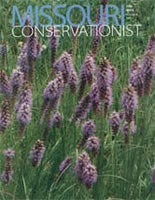Nature's Services
Nature provides complex services that make civilization possible. Land that has been developed for cities, towns, highways, mining and agriculture can no longer provide the level of essential services of healthy, less-developed natural landscapes.
Nature’s services are often not obvious. They are largely unappreciated and grossly undervalued. Powered by free solar energy, healthy forests, prairies, marshes, streams, and other natural communities provide essential life support services that we cannot duplicate artificially. They include:
- regeneration of the soil and its fertility,
- prevention of soil erosion,
- water and air purification,
- watershed and water quality protection,
- recycling of nutrients,
- detoxification and decomposition of wastes and poisons,
- pollination of crop plants,
- moderation of climate,
- control of forest and crop pests and diseases,
- maintenance of biodiversity,
- reducing greenhouse gasses by locking atmospheric carbon into wood, roots, and soil,
- moderating the effects of floods and droughts.
The true value of nature’s services on a piece of land may draw from its recreational or commodity values. And these services benefit all of us, no matter where we live. But because nature’s services carry no price tag and are not traded in any market, they are often not adequately considered in valuing conservation lands.
As an example, remote public and private Ozark forest land provides direct recreation and commodity benefits. But these lands also protect the watersheds of clear, clean Ozark springs and streams. They lock carbon from the atmosphere into tree fiber. They protect a diverse assemblage of plants and animals of unknown future value. And they provide large, forested areas required by some species of migratory birds.
The Conservation Department manages its land for healthy, functioning natural communities that allow nature to provide its essential services for the public benefit. To the extent that private landowners practice conservation on their land, they also provide benefits for us all. The new Farm Bill recognizes the importance of well-managed natural communities and provides for restoration cost-share and incentives to landowners who protect and improve natural communities on their land. For both public landholding agencies and private owners, healthy forests, prairies, streams, and wetlands provide benefits to all of society, because nature’s services reach far beyond the place where they originate. Our quality of life depends on the continuation of nature’s essential services on the less-developed portions of the Missouri landscape.
Richard Thom, Natural History Division Administrator
And More...
This Issue's Staff
Managing Editor - Bryan Hendricks
Art Editor - Dickson Stauffer
Artist - Dave Besenger
Artist - Mark Raithel
Photographer - Jim Rathert
Photographer - Cliff White
Staff Writer - Jim Low
Staff Writer - Joan McKee
Circulation - Bertha Bainer






















